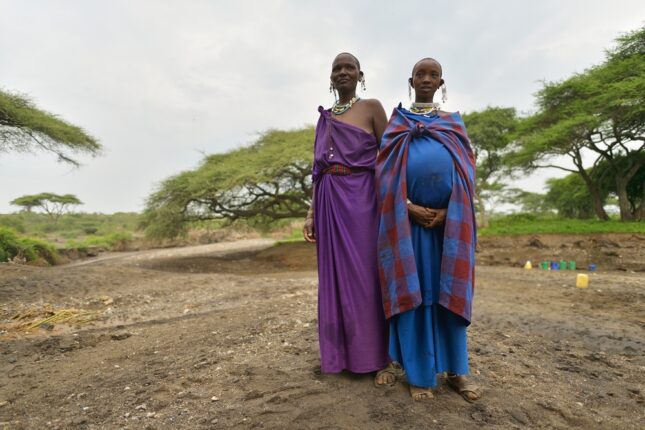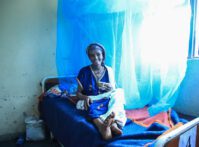-
Afro-Descendant Women and Girls Deserve Culturally Relevant Healthcare and Better Data
October 16, 2024 By Consolata Chikoti
A recent study from the United Nations Population Fund (UNFPA) and its partners found that women and girls of African descent living in the Americas are up to three times more likely to die from preventable maternal death causes. So it is no surprise that UNFPA’s Executive Director of Programs, Diene Keita, is calling attention to this challenge.
“The lack of culturally relevant healthcare approaches and institutional-based disaggregated data further deepen disparities and make it difficult to address the uniqueness of Afro-descendant women and girls,” Keita said at a recent United Nations General Assembly (UNGA) event to launch the Global Coalition to Advance Maternal Health for Women and Girls of African Descent. “Systemic and structural racism and sexism are significant drivers and impede these women and girls from realizing their rights to access the highest attainable standard of care.”
There is ample evidence to support Keita’s framing of this issue. In 1982, the breast cancer incidence and mortality rates were identical between Black women and white women in the United States. Today, however, there is a 42% disparity in mortality rates between the two groups.
“It reflects only who got access to early detection and quality treatment and those who didn’t, and that persists today,” said Linda Goler Blount, President and CEO of Black Women’s Health Imperative. “These are systemic issues.” Only 11 out of 35 countries in the Americas collect maternal health data broken down by race, and only four provide data on maternal deaths by race.
Childbirth is another area of concern in this space, especially in establishing the value of doulas in the process. “Doulas are an intervention. We do not usually think of us that way, but we are. We help families know their options, advocate for what they want, and help them set up to succeed,” said Emilie Rodrigues, Post-Partum Doula and Medical Anthropologist.
Studies have shown that doulas can help in numerous ways. They decrease the length of labor by 25%, and Cesarean deliveries by 50%. Doulas also can reduce the use of Pitocin by 40%, and the request for an epidural by 60%—and offer a 58% decline in post-partum depression and anxiety. “Society tells us that the only goal of labor and delivery is a healthy mom and baby, but it is important how the moms feel afterward. Were they listened to? Do they feel respected? Were they empowered to play an active role in their decision-making process?” said Rodrigues.
The Women of Color Reproductive Justice Collective Sister Song utilizes community-based participatory research methods to connect with individuals and gather real-life stories and experiences. “It took us being able to go to people [and] to meet them where they are to get these stories to help us understand how to create the best policies and the best solutions to get people access to what they need,” said Monica Simpson, the organization’s Executive Director.
“We realized we were not measuring the right things or collecting the data the right way, so we improved our methods to include variables such as disability status, gender, and race,” added Karline Wilson-Mitchell Professor of Midwifery at Toronto Metropolitan University.
Carmen Correa, CEO of Pro Mujer, pointed to another confluence that needs attention: “We need to understand the needs of women and we need to understand the intersectionality.” Pro Mujer has empowered thousands of Afro-descendant women in Venezuela, Mexico, and Colombia through leadership and business skills training while also creating free preventive care chatbots on diabetes, breast cancer, and sexual reproductive health to reduce maternal mortality, teenage pregnancy, and cervical cancer deaths.
Keita urged a concerted push to meet these challenges and finish the tasks at hand. “We need to get to the last mile together,” she observed. “The last mile can be very far in some countries, and the last mile in some countries can be in the middle of New York City, yet it can be very, very far. How to get to the last mile is important, but why we need to get to the last mile is because everyone counts.”
This launch event was hosted by UNFPA, in partnership with PAHO, the Universal Access Project, and the Governments of Luxembourg, Costa Rica, Colombia, Brazil, Mexico, and Surinam to enhance transnational solidarity and action to bridge the gap in maternal health outcomes for women and girls of African Descent.
Sources: Centers for Disease Control and Prevention, eClinicalMedicine, NBC News, Pro Mujer, Sister Song, UNFPA.
Photo Credit: Maasai pregnant women in Seronera, Tanzania. mikkeel/Shutterstock.com.
 A Publication of the Stimson Center.
A Publication of the Stimson Center.








